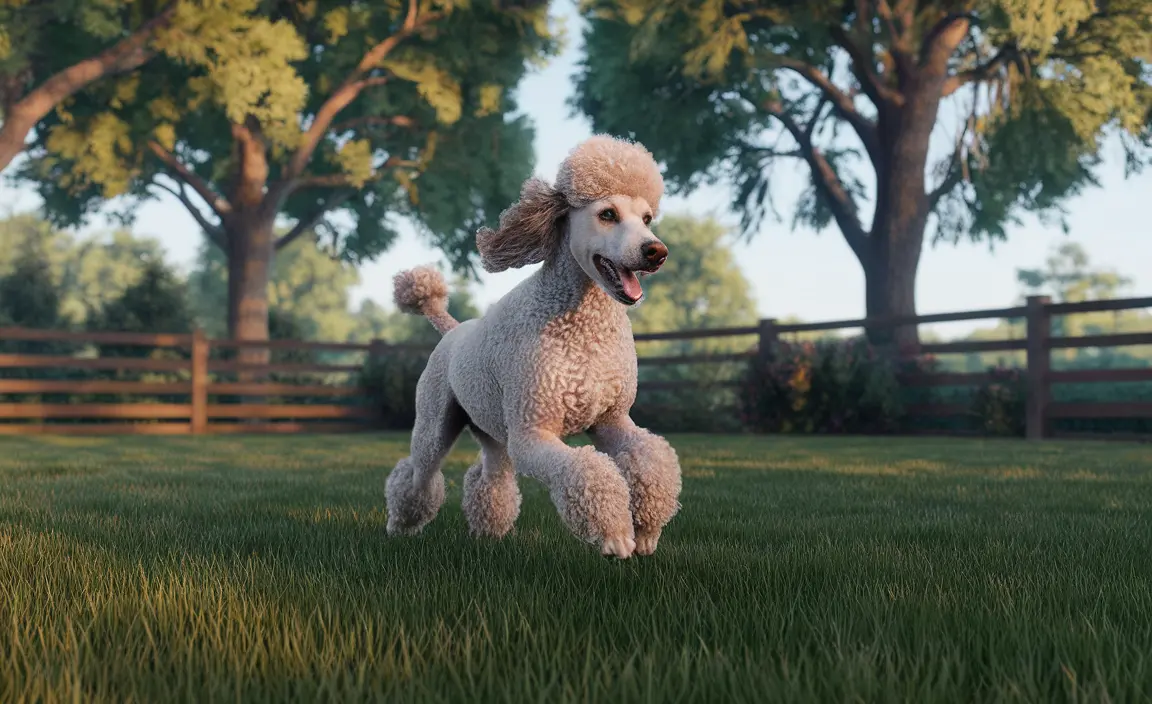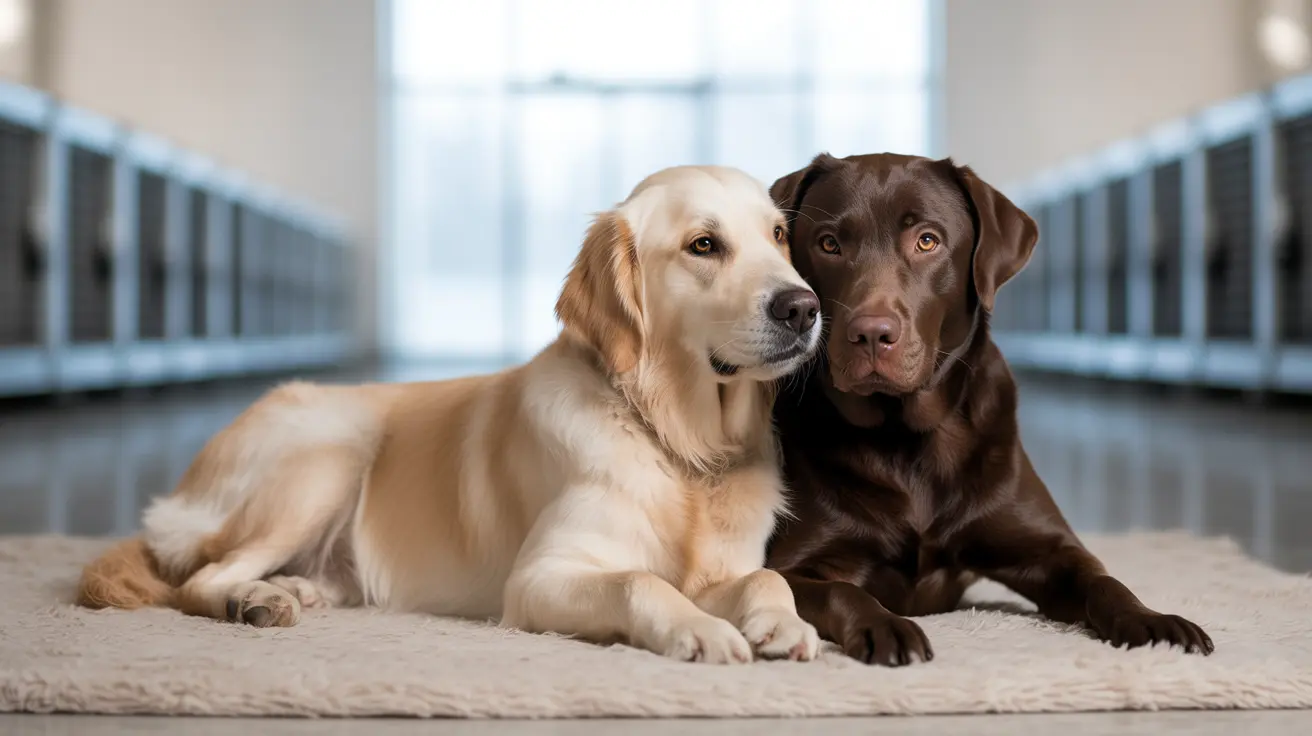Large Hypoallergenic Dogs: Finding the Perfect Allergy-Friendly Companion
For dog lovers with allergies, finding the right canine companion can feel like an impossible challenge. The good news is that large hypoallergenic dogs offer a fantastic solution for those seeking a furry friend without constant sneezing and itching. While no dog is 100% hypoallergenic, certain breeds can significantly reduce allergic reactions and provide the loving companionship you've always wanted.
Understanding the nuances of hypoallergenic dogs is key to finding your ideal pet. This comprehensive guide will explore the best large hypoallergenic dog breeds, help you understand allergen management, and provide practical tips for allergy sufferers looking to welcome a four-legged friend into their home.
Understanding Hypoallergenic Dogs: Myths and Realities
Contrary to popular belief, hypoallergenic doesn't mean "allergy-free." These dogs produce fewer allergens, primarily through reduced shedding and lower dander production. The proteins found in dog saliva and skin cells are the real culprits behind allergic reactions, not the fur itself.
How Hypoallergenic Dogs Differ from Traditional Breeds
- Minimal shedding
- Less dander production
- Typically require more frequent grooming
- Often have hair-like coats instead of traditional fur
Top Large Hypoallergenic Dog Breeds for Allergy Sufferers
Standard Poodle: The Intelligent Hypoallergenic Giant
Standard Poodles are a top choice for large hypoallergenic dogs. Standing up to 24 inches tall and weighing up to 70 pounds, these intelligent dogs offer the perfect blend of size, personality, and low-allergen characteristics. Their tightly curled coat minimizes shedding and traps dander, making them an excellent option for allergy-prone families.
Portuguese Water Dog: An Active Hypoallergenic Companion
Made famous by the Obama family, Portuguese Water Dogs are another fantastic large hypoallergenic breed. These athletic dogs typically weigh between 35-60 pounds and feature a non-shedding coat that's perfect for those with allergies. Their high energy and intelligence make them ideal for active households.
Giant Schnauzer: The Protective Hypoallergenic Guardian
For those seeking a larger, more protective breed, the Giant Schnauzer delivers. Weighing up to 95 pounds, these dogs combine hypoallergenic qualities with an impressive presence. Their wiry coat requires regular grooming but produces minimal allergens, making them a great choice for allergy sufferers who want a robust companion.
Managing Allergies with Hypoallergenic Dogs
Practical Allergy Reduction Strategies
Even with a hypoallergenic breed, management is crucial. Regular grooming, using air purifiers, and maintaining a clean home can dramatically reduce allergic reactions. Consider these practical tips:
- Bathe your dog weekly
- Use specialized hypoallergenic shampoos
- Brush your dog outside to minimize indoor allergen spread
- Invest in high-quality air purifiers with HEPA filters
Choosing the Right Hypoallergenic Dog for Your Family
Selecting a hypoallergenic dog requires careful consideration. Spend time with the specific dog before adoption, as individual dogs within a breed can produce varying levels of allergens. Adult dogs might be preferable, as their allergen production is more consistent compared to unpredictable puppies.
Frequently Asked Questions
What are the best large hypoallergenic dog breeds for families with allergies?
Standard Poodles, Portuguese Water Dogs, and Giant Schnauzers are excellent large hypoallergenic breeds. Each offers unique characteristics while minimizing allergic reactions.
Why are no dogs completely 100% hypoallergenic?
All dogs produce proteins in their saliva and skin cells that can trigger allergies. Hypoallergenic breeds simply produce fewer of these allergens.
How can regular grooming help reduce allergens from big hypoallergenic dogs?
Regular grooming removes loose hair, dander, and trapped allergens. Brushing outside, using specialized shampoos, and maintaining a consistent grooming routine significantly reduces potential allergic reactions.
What are the key considerations when choosing a large hypoallergenic dog?
Consider the dog's specific coat type, grooming requirements, energy level, and individual allergen production. Always spend time with the specific dog before adoption to assess your allergic response.
Are mixed-breed dogs that have hypoallergenic parents just as effective at reducing allergy symptoms?
Mixed-breed dogs can inherit hypoallergenic characteristics, but results vary. Consulting with a breeder or veterinarian can help determine the potential allergen levels in mixed-breed dogs.
Finding the perfect large hypoallergenic dog is possible with careful research and understanding. By focusing on breeds known for low allergen production and implementing smart management strategies, allergy sufferers can enjoy the incredible companionship of a four-legged friend.






